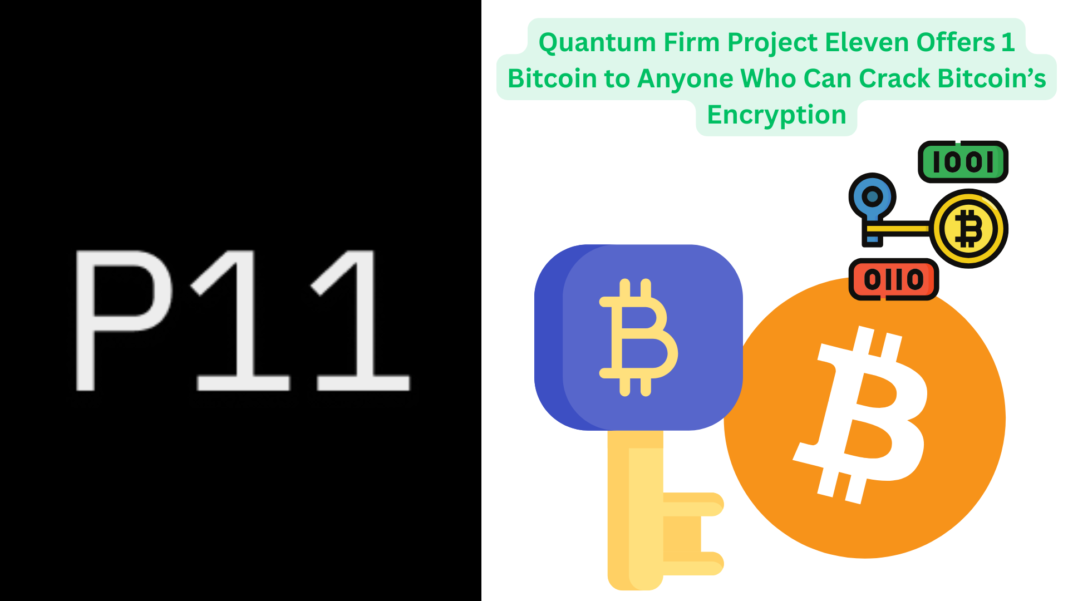Project Eleven, a quantum computing research firm, has introduced the “Q-Day Prize,” which offers 1 Bitcoin (about $84,000) to the first person or group to use a quantum computer to crack a Bitcoin elliptic curve cryptography (ECC) key.
The challenge was launched on April 16, 2025, with the goal of evaluating the practical risk that quantum computing presents to the security of Bitcoin.
A popular type of public-key cryptography, Elliptic Curve Cryptography (ECC) protects everything from online TLS encryption to Bitcoin wallets. Because ECC is more efficient and offers the same level of security as more conventional systems (like RSA), it is preferred.
It serves as a proof-of-concept that, once the required computation is available, the method may scale to crack a full 256-bit Bitcoin key.
Participants must apply Shor’s algorithm on a quantum computer to crack as many bits of a Bitcoin key as they can. The submission date is April 5, 2026.
Also Read: Microsoft’s New Quantum Chip Raises Concerns About Bitcoin’s Future Security
Project Eleven Aims At Safeguarding Bitcoins
According to Project Eleven, more than 6 million Bitcoins, valued at around $500 billion, are presently stored in wallets with public keys that are exposed and may be in jeopardy if quantum capabilities continue to develop.
The initiative encourages real-world examples of cryptography vulnerability in an effort to translate theoretical debates about quantum concerns into quantifiable hazards.
Also Read: Solana Unveils Quantum-Resistant Vault With New Keys Generation for Each Trade
Researchers and developers can now more easily access quantum computing thanks to cloud-based services offered by companies like IBM, AWS, Google, and Alibaba.
Like the RSA Factoring Challenge in 1991 and Hal Finney’s SSL cipher challenge in 1995, which were both crucial in gauging cryptographic resilience, the Q-Day Prize carries on the legacy of cryptographic benchmarking tasks.
Also Read: Bitcoin Developers Face Disruption As Google Temporarily Bans Bitcoin’s Key Mailing List
Why is The Challenge Necessary?
The speed at which quantum computing is developing has raised concerns about its potential to crack conventional cryptography.
A problem that would take supercomputers ten septillion years to solve was recently resolved in five minutes by Google’s “Willow” device, demonstrating significant advancements in quantum error correction.
Significant advancements have also been made in Microsoft’s “Majorana 1” and Amazon’s “Ocelot” chips, and PsiQuantum raised $750 million in early 2025 to improve Shor’s algorithm, which is used to calculate encryption keys, and speed up the creation of photonic circuits.
At the same time, more researchers and developers can investigate quantum applications, including some that can jeopardize Bitcoin’s encryption, thanks to cloud-based quantum computing services from IBM, AWS, Google, and Alibaba.
Also Read: Analyst Points Key Levels for Bitcoin: $94K Resistance and $76K Support for Next Big Move


